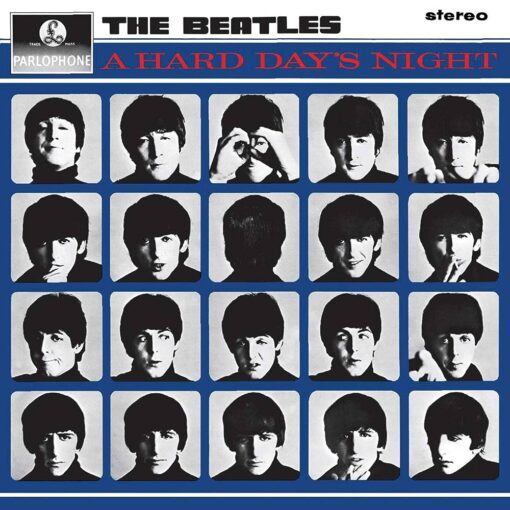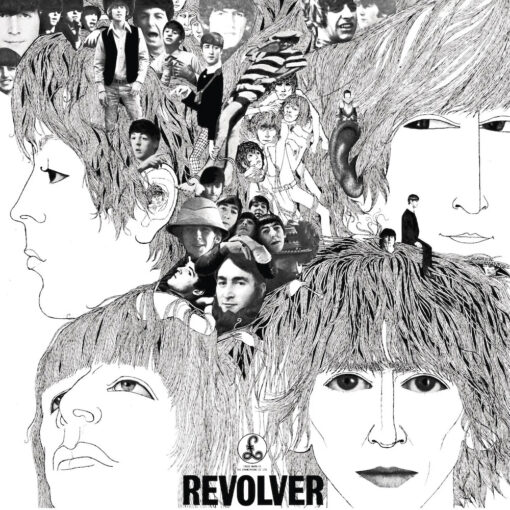The Beatles released Revolver on 5 August 1966, accompanied by a double A-side single called “Eleanor Rigby” / “Yellow Submarine“. It was the Beatles’ final recording project before they retired as live performers, marking their most overt use of studio technology since their late 1965 album Rubber Soul. Since its release, it has been recognized as one of the greatest and most innovative albums in the history of popular music, featuring a variety of musical styles, sounds, and lyrics.
Revolver was recorded after the Beatles took a three-month break at the beginning of 1966, since London enjoyed a reputation as the world’s cultural capital at that time. It is regarded by some commentators as the start of the group’s psychedelic period, reflecting their interest in LSD, Eastern philosophy, and the avant-garde, while also addressing themes such as death and transcendence. Having no plan to perform the new material live, the band made liberal use of double tracking, varispeed, reversed tapes, close audio miking, and instruments outside of their standard set-up. Among the tracks are “Tomorrow Never Knows“, which incorporates heavy Indian drone and a tape loop collage; “Eleanor Rigby“, which features a string octet as its only accompaniment; and “Love You To“, which incorporates Hindustani classical music. During the sessions, the band also recorded a non-album single, “Paperback Writer,” backed by “Rain“.
The 14 tracks on the album were gradually distributed to radio stations prior to its release in the United Kingdom. Capitol Records reduced Revolver to 11 songs in North America, with the omitted three appearing on Yesterday and Today in June 1966. The release of the album there coincided with the Beatles’ final concert tour and controversy surrounding John Lennon’s remark that the band had become “more popular than Jesus”. For seven weeks, the album topped the UK’s Record Retailer chart, and for six weeks, the US’s Billboard Top LPs chart. Despite the band’s outspokenness on contemporary issues, the UK press reacted highly positively to its music, while the US press was less so.
Psychedelic rock, electronica, progressive rock, and world music were all influenced by Revolver, which expanded the boundaries of pop music and revolutionized studio recording practices. Klaus Voormann’s album cover combines Aubrey Beardsley-inspired line drawing with photo collage and won the 1967 Grammy Award for Best Album Cover, Graphic Arts. The 1987 international CD release of Revolver, which standardised its content to that of the original Parlophone release, contributed to the album’s status as the Beatles’ greatest. According to Colin Larkin’s book All Time Top 1000 Albums, it was rated first in 1998 and 2000, and third in Rolling Stone magazine’s “500 Greatest Albums of All Time” list in 2003 and 2012. RIAA and BPI have both certified it double platinum. In 2022, a remixed and expanded version of the album was released.
- Release date: August 5, 1966
- Genres: Rock, Pop music, Psychedelic rock, Pop rock
- Label: Parlophone
- Nominations: Grammy Award for Album of the Year, Grammy Award for Best Album Cover, Graphic Art
- Awards: Grammy Award for Best Album Cover, Graphic Arts
Revolver tracklist
SIDE A
- Taxman
(Harrison) - Eleanor Rigby
(Lennon/McCartrney) - I’m Only Sleeping
(Lennon/McCartrney) - Love You To
(Harrison) - Here, There And Everywhere
(Lennon/McCartrney) - Yellow Submarine
(Lennon/McCartrney) - She Said She Said
(Lennon/McCartrney)
SIDE B
- Good Day Sunshine
(Lennon/McCartrney) - And Your Bird Can Sing
(Lennon/McCartrney) - For No One
(Lennon/McCartrney) - Doctor Robert
(Lennon/McCartrney) - I Want To Tell You
(Harrison) - Got To Get You Into My Life
(Lennon/McCartrney) - Tomorrow Never Knows
(Lennon/McCartrney)


8 thoughts on ““Revolver” album (1966)”